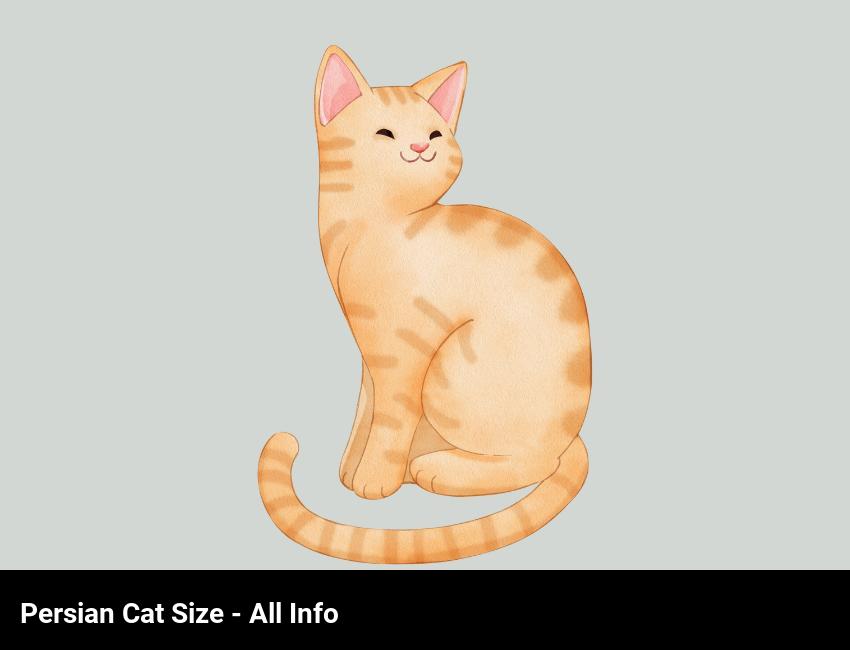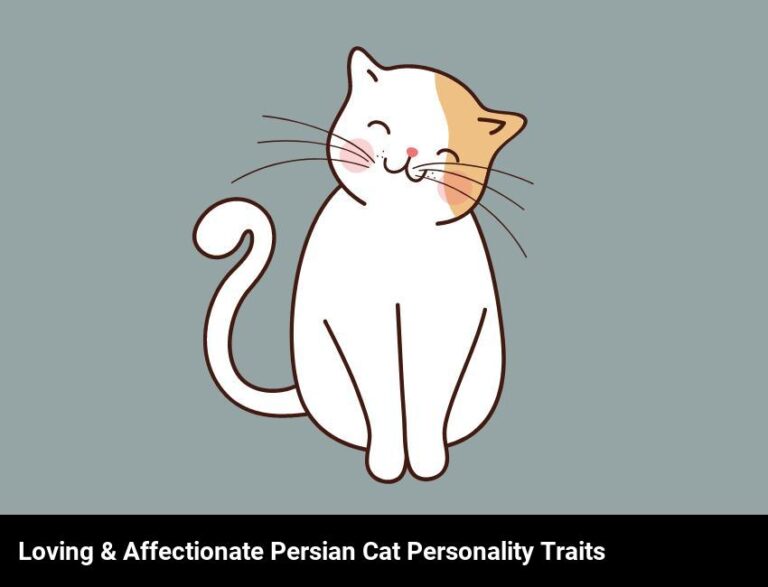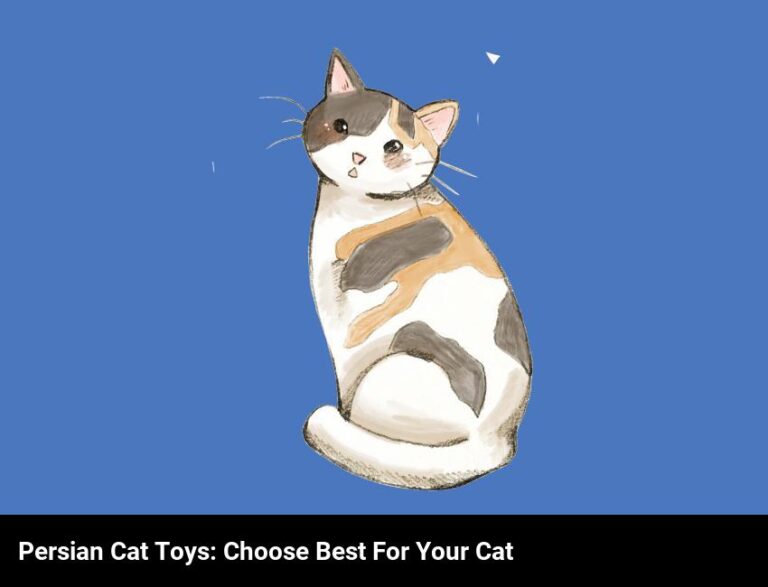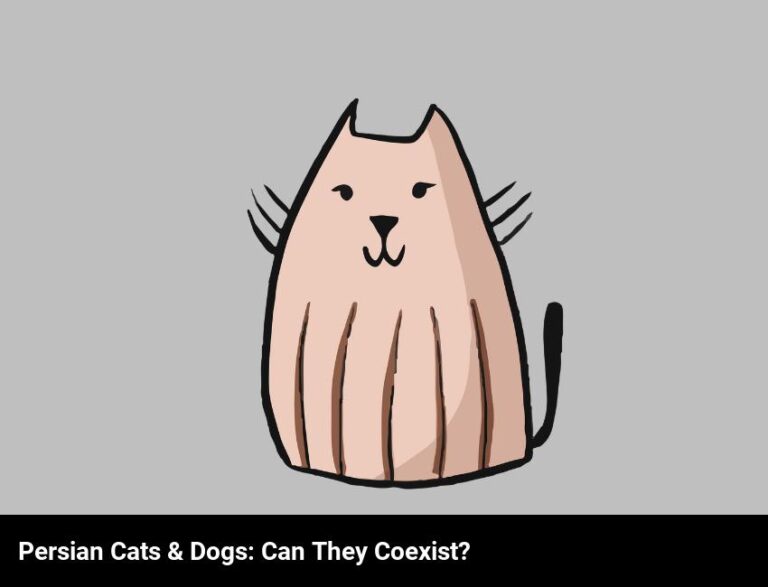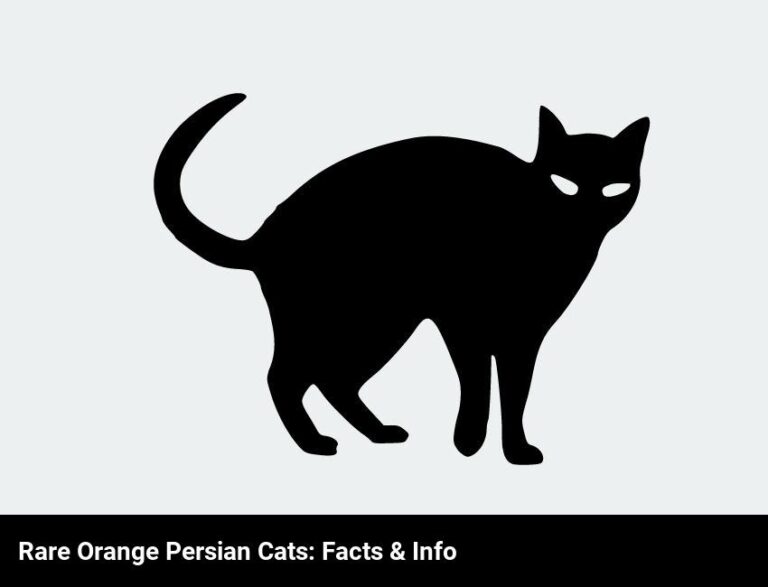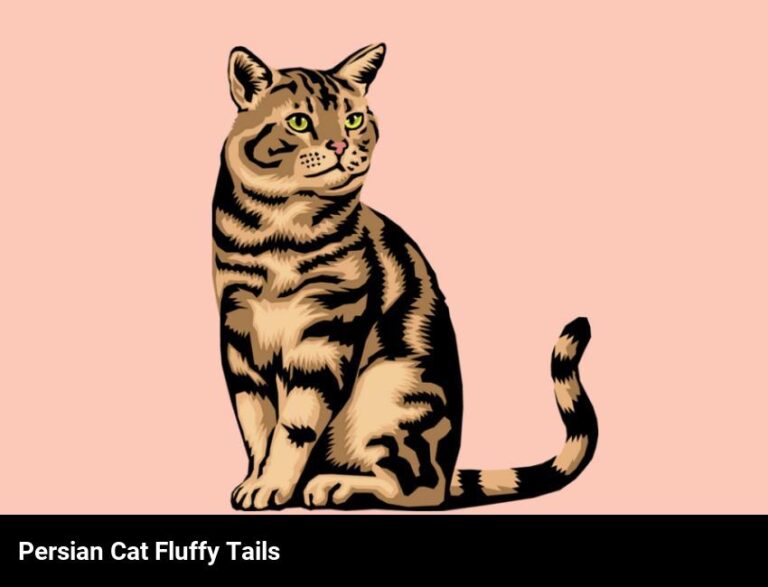Persian Cat Size: Everything You Need To Know
Persian cats are medium-sized cats, typically weighing between 7-12 pounds when fully grown. They have long, silky coats and can come in a variety of colors. Persian cats are known for their laid-back personalities and affectionate nature.
As a proud Persian cat owner, I know the importance of understanding the size of the breed. Persian cats are known for their long, fluffy coats and beautiful faces, making them one of the most popular breeds of cats. But what’s the average size of a Persian cat, and how do you tell if your Persian cat is healthy? In this blog, I’ll answer all of these questions as I share my personal experience with Persian cats.
I’ve owned several Persian cats over the years, and I’ve learned a lot about their size, health, and diet. I’ll discuss the different types of Persian cats, the best diet and exercise plan for your Persian cat, and the special care they need. I’ll also talk about the common health issues that the breed faces, and how to choose the right Persian cat for you. Finally, I’ll give you some tips and tricks I’ve learned over the years for caring for your Persian cat.
Whether you’re a new or experienced Persian cat owner, I hope this blog will help you better understand the needs of your cat.
What’s the average size of a persian cat?
If you’ve been wondering what the average size of a Persian Cat is, you’ll be happy to know that they’re generally quite small! The average adult Persian Cat is about 8-10 inches tall and weighs about 8-10 pounds. This makes them an ideal companion for those looking for a pet that won’t take up too much space but still provides lots of love and affection.
Persians have a very distinctive appearance – they have long fluffy fur, round faces, and a short muzzle. They come in a variety of colors, including white, silver, black, and brown. They also have a longer than average lifespan of 13-15 years.
In addition to their small size, Persian cats are also known for their laid-back personalities. They love to cuddle and be around people, but they’re not overly active or energetic. They tend to be quite lazy and don’t require a lot of exercise.
Overall, the average size of a Persian Cat is 8-10 inches tall and 8-10 pounds, making them an ideal companion for those looking for a pet that won’t take up too much space but still provides lots of love and affection.
How can you tell if your persian cat is healthy?
If you have a Persian cat, you want to make sure your pet is always healthy. Here are some tips to help you tell if your cat is in good health:
Look at your cat’s eyes – Does your cat have bright and clear eyes? Are there any signs of redness or irritation? If your cat’s eyes look healthy, chances are they are.
Check your cat’s coat – Is your cat’s coat soft and shiny? Does it look clean and free of mats or clumps? A healthy coat is the sign of a healthy cat.
Weigh your cat – Is your cat at a healthy weight? Persian cats should weigh between 6 and 14 pounds, but it depends on the size of your cat. If your cat is overweight or underweight, it may be a sign of health problems.
Observe your cat’s behavior – Is your cat active and playful? Does your cat seem happy and content? If your cat is sleeping and eating normally, it is usually a sign of good health.
By following these tips, you can tell if your Persian cat is healthy. If you have any doubts about your cat’s health, it’s always best to talk to your vet.
What are the different types of persian cats?
When it comes to Persian cats, there are plenty of looks to choose from! From their long, luxurious coats to their expressive eyes, it’s easy to see why these cats have become so popular. But what are the different types of Persian cats? Let’s take a look at some of the most common types.
First, there’s the Traditional Persian. This type of Persian is known for its long, fluffy coat and round face. They usually come in shades of white, black, or gray, and they have a gentle, laid-back personality.
The Himalayan Persian is another popular type. This type of Persian is a mix of a Persian and a Siamese cat. They have the same long coat and round face as the Traditional Persian, but they also have the Siamese’s distinctive blue eyes and dark points.
The Teacup Persian is a small variation of the Traditional Persian. This type of cat is known for its tiny stature and playful demeanor. The Teacup Persian is also recognized for its wide range of coat colors, including white, black, gray, and even tortoiseshell.
Lastly, there’s the Exotic Shorthair, a type of Persian with a short, dense coat. This type of cat is known for its affectionate personality, and they come in a range of colors, including white, black, and gray.
No matter which type of Persian you choose, you’ll be sure to get a cat with a beautiful, long coat and a personality to match! With so many types of Persian cats to choose from, it’s easy to find the perfect feline companion for your family.
What are some tips for caring for your persian cat?
Keep their coat clean and groomed: Persian cats have long, luxurious coats that require regular brushing and combing to prevent matting. Make sure to brush at least once a week to remove dirt, debris, and excess fur.
- Provide a healthy diet: Persian cats need a special diet that is high in protein and low in carbohydrates. Be sure to feed them a high-quality cat food that provides all the necessary nutrients for a healthy coat.
- Provide plenty of playtime: Persian cats are active and playful, so make sure to provide them with plenty of toys and activities to keep them entertained. Regular playtime will help them stay active and healthy.
- Give them plenty of love and attention: Persian cats love to cuddle and be petted, so make sure to give them plenty of time and attention. Talk to them and give them treats so they know they are loved and appreciated.
- Visit the vet regularly: Persian cats need regular check-ups and vaccinations to stay healthy. Make sure to schedule regular visits to the vet and follow any treatments they recommend.
What’s the best diet and exercise plan for your persian cat?
Are you wondering what the best diet and exercise plan is for your Persian cat? Well, there’s no one-size-fits-all answer to this question, as each cat is unique and has different needs. However, there are some general guidelines that you can follow to ensure your Persian cat is getting the nutrition and exercise they need.
When it comes to diet, it’s important to feed your Persian cat a nutritionally balanced diet. This means providing a high-quality cat food that is specifically designed for cats, as well as supplementing their diet with fresh fruits and vegetables. You should also make sure to provide your cat with plenty of fresh, clean water to drink.
When it comes to exercise, it’s important to provide your Persian cat with plenty of opportunities to get active. This can include playing with your cat regularly, providing them with lots of toys to keep them entertained, and making sure they have ample space to explore and roam. Additionally, if your cat is an outdoor cat, you should ensure they have access to a safe and secure outdoor area.
Overall, it’s important to keep your Persian cat’s diet and exercise needs in mind. Make sure to feed them a nutritionally balanced diet and provide them with plenty of opportunities to get active and have fun. With the right diet and exercise plan, your Persian cat will stay happy and healthy for years to come.
What special care does a persian cat need?
When it comes to special care, Persian cats need very little. Despite their luxurious coats and delicate features, Persians are surprisingly low maintenance pets. They don’t need a lot of exercise and can get by with minimal grooming.
However, there are a few things you should keep in mind if you have a Persian cat. First, these cats can be prone to dental problems, so it’s important to brush your cat’s teeth regularly. Secondly, you should keep your Persian’s coat well groomed, especially during the shedding seasons. And thirdly, be sure to keep their living area clean and free of debris like fur and litter.
Persians also have sensitive digestive systems, so it’s important to feed them a high quality cat food. Avoid cheap brands of cat food, as the fillers in these foods can upset your cat’s stomach. And, of course, make sure your Persian has plenty of fresh, clean water available.
While Persians don’t require a lot of special care, they do need a bit more attention than other cats.
What health issues do persian cats face?
If you’re thinking of adding a Persian cat to your family, it’s important to know about the health issues they can face. Persian cats are generally healthy, but there are certain health conditions you should be aware of.
Luxating Patella is a common issue in Persian cats. This is when the kneecap slips out of place and causes pain and discomfort. If your cat develops this issue, they may need surgery to repair it.
Flat-faced cats like the Persian breed can be prone to breathing problems. They often have narrow nostrils and a soft palate that can obstruct their airways, resulting in loud snoring or difficulty breathing. If these symptoms are present, your vet may recommend surgery.
Persians are also predisposed to gum and tooth disease which can lead to pain, infection, and tooth loss. They should receive regular dental check-ups and good oral hygiene from an early age.
Finally, Persian cats are prone to developing eye problems such as glaucoma and corneal ulcers. Regular eye exams from your vet can help detect any issues.
Overall, Persian cats are generally healthy, but it’s important to be aware of the health issues they can face. With good care, your Persian cat can live a long and happy life.
How do you choose the right persian cat for you?
Choosing the right Persian cat for you is all about finding the perfect fit for your lifestyle. It’s important to research the breed and size of Persian cats before you make a decision. Fortunately, the average size of a Persian cat is relatively small and can fit into a variety of living situations. Here are some tips to help you choose the perfect Persian cat for you!
First, consider the size of your home. If you live in a small apartment, a miniature Persian cat might be a great fit. These cats often weigh less than seven pounds, making them ideal for living in tighter spaces. On the other hand, if you have a larger home, a full-sized Persian cat may be a better option. These cats typically weigh between seven and twelve pounds.
Next, think about how much time you can dedicate to your cat. Persian cats require daily grooming, which can be a time-consuming task. If you don’t have the time or energy to groom a full-sized Persian cat every day, a miniature Persian might be easier to manage.
Finally, consider your budget. Persian cats are known to be pricier than other breeds, and their costs can vary depending on size, color, and other factors. If you’re looking for a more affordable option, a miniature Persian cat may be the way to go.
No matter which size of Persian cat you choose, you’ll have a loyal and loving companion for years to come.
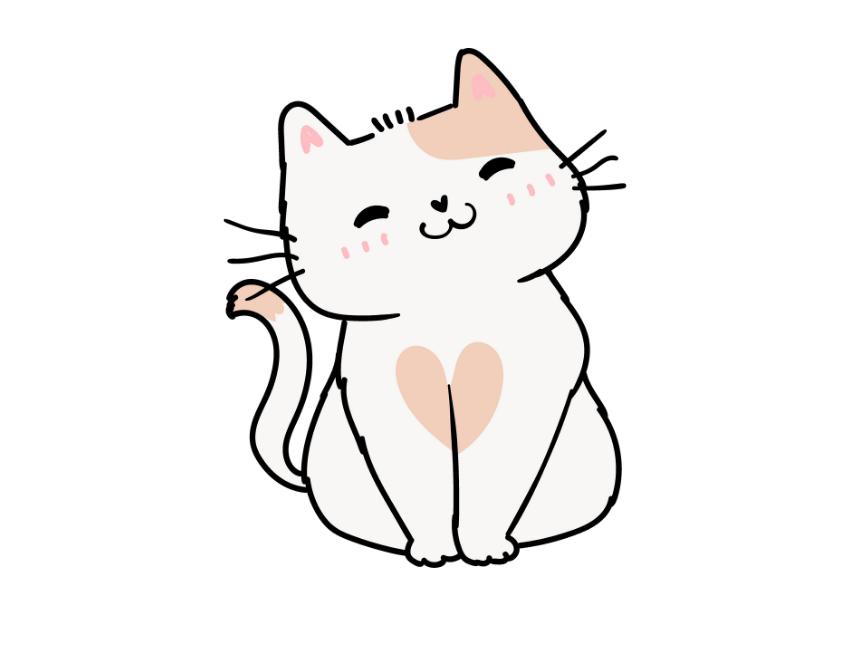
Frequently Asked Questions
What colors do persian cats come in?
Persian cats come in a wide variety of colors, including white, black, blue, cream, smoke, red, tabby, and tortoiseshell. Some cats may also be calico, silver, or solid. The coat patterns and colors can be quite striking and beautiful, making Persian cats a popular choice for many cat lovers.
Are persian cats good with kids?
Yes, Persian cats can make great family pets! They are very gentle and laid-back, so they are usually comfortable around children. They are also quite loyal and affectionate, so they can form strong bonds with their human companions. Persian cats will need plenty of love and attention from their owners, so be sure to make time for them.
What makes persian cats unique?
Persian cats are unique for a number of reasons, including their long, luxurious fur, their calm and friendly personalities, and their round, cuddly faces. They are known for their intelligence and loyalty, and they are easy to train. They are also highly adaptable, making them great companions for any home. With their distinctive look, Persian cats are certainly one of a kind.

